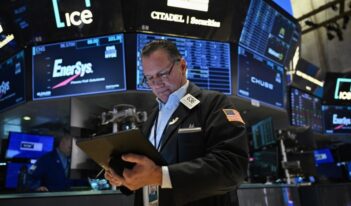
The Labor Department issued a final rule allowing fiduciaries to consider ESG factors when deciding how to invest.
Over half of Americans invest money in the stock market. Most Americans are also worried about global warming and the harm it will cause future generations. These worries have led many workers to consider how their retirement investments will affect the environment. But until recently, it has been difficult for individuals to invest in environmental, social, and governance (ESG) retirement funds, as federal regulations precluded the managers of these funds from even considering ESG factors when making investment decisions.
The U.S. Department of Labor recently took steps to change these rules. In November, the Department issued a new regulation under the Employee Retirement Income Security Act (ERISA) of 1974 that allows retirement plan decision-makers, called fiduciaries, to consider ESG factors when deciding how to invest.
This new rule will allow, but will not require, fiduciaries to consider ESG factors when selecting 401(k) investments and exercising shareholder rights. Fiduciaries must still put the financial interests of plan participants first and cannot sacrifice potential gains for ESG goals.
The rule follows an executive order signed by President Joseph R. Biden advising the Labor Department to rescind or revise the Trump Administration’s less ESG-friendly rules, which went into effect shortly before President Biden took office. Specifically, the Trump Administration restrained fiduciaries’ ability to weigh social or policy objectives when choosing investments, even when those objectives would benefit plan participants.
Lisa M. Gomez, Assistant Secretary for Employee Benefits Security, described the Trump Administration’s regulations as having a “chilling effect” on the flexibility of fiduciaries to consider ESG factors. The Trump rules repealed Obama-era guidance that had stated that ESG issues do impact a plan’s economic value and are “proper components” of a fiduciary’s analysis of competing investment choices.
But the Trump rules have now been repealed by the Labor Department’s new regulatory action.
Many individuals have praised this new action. Perhaps predictably, Democratic leaders expressed strong support for the rule and have even introduced legislation that would codify environmental consideration in retirement plan decision-making.
Moreover, in a recent letter to Congress, 17 state attorneys general rejected arguments that the consideration of ESG factors “is inconsistent with prudent investing.”
As part of the process of developing its new rule, the Labor Department received approximately 900 written comments from the public. According to the Department, 97 percent of commenters supported reversing the Trump Administration rules and clarifying that the use of ESG factors in investment selection is consistent with fiduciary duties under ERISA. Some of these supportive comments came from financial services firms and organizations, including the Investment Company Institute, Mercer Investments, and Council of Institutional Investors.
In general, younger investors increasingly prioritize ESG factors when making investment decisions. A recent survey shows that investors in their twenties and thirties look to invest in ways more consistent with their social and political values, even if it winds up being costlier. Although typical Millennial and Generation Z investors are reportedly willing to lose between 6 and 10 percent of their investments to see companies improve their environmental practices, the average Baby Boomer is apparently unwilling to lose anything.
Despite the support for the new rule, critics of the Labor Department’s recent action have raised several concerns.
Republicans have accused investors of forcing companies to adopt a socially conscious agenda at the expense of corporate profits. Currently, over 17 states have proposed or adopted legislation limiting the ability of the state government, including public retirement plans, to conduct business with certain ESG-conscious entities. Most recently, Florida Governor Ron DeSantis banned state pension fund managers from incorporating ESG into investment decisions.
In addition, critics have argued that ESG funds are not always managed with ESG goals in mind and that the ESG label can be misleading. The U.S. Securities and Exchange Commission has even launched a Climate and ESG Task Force to pursue lawsuits against companies or funds that mislead investors about strategies to address climate change risk.
Recent studies nonetheless have shown that ESG funds for the most part do offer investments in alignment with ESG principles. Studies also indicate that ESG-conscious companies see increased profits.
Martin Walsh, the U.S. Secretary of Labor, agrees that companies are more profitable when they focus on environmental impact, treat workers fairly, and prioritize diversity on management teams. “If retirement investors cannot take these factors into account—even when it would benefit you financially—that’s a problem,” Walsh observed when announcing the new rule.
ESG investing is currently still rare in 401(k) plans. According to Vanguard, a leading investment management firm, only 13 percent of its 401(k) plans offer ESG funds. But the new Labor Department regulation could create new opportunities for large money managers, such as BlackRock and Vanguard, to market new ESG-conscious investment options, especially considering that the next generation of investors has expressed interest in these funds.



